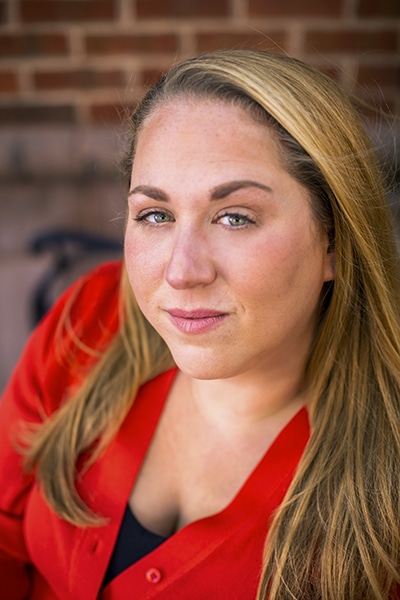In the United States, recreational opioid use has increased in popularity over the past decade, causing cities to look critically at this trend. While there are many reasons people get hooked on these pain-relieving drugs, federal and state prosecutors say big drug manufacturers should pay for their alleged role in creating this national epidemic. Galia Porat, associate general counsel at Teva Pharmaceuticals, wants to reframe that narrative.
Porat knows that many view big pharma as a perpetual enemy, but she argues that Teva, the largest generic drug manufacturer in the world, didn’t perpetuate opioid abuse, as some believe. While trying to win hearts and change minds is a futile task, Porat is looking to back Teva as part of the solution—not the problem.

Porat started her legal career as an associate at Dechert, where she represented corporations and business executives in high-dollar civil and criminal cases. During her time there, the firm represented Japanese manufacturer Takata in the largest automotive recall case in history.
Porat worked alongside renowned attorney Andrew Levander and learned all aspects related to defending companies against regulatory, international, and federal challenges. The Takata case and other experiences helped Porat realize she enjoyed taking a deep dive into the policies, practices, and strategies of a specific company. “I knew I wanted to install sprinklers instead of putting out fires,” she says. “It was the right move for me to go in-house at a public company.”
Teva has been a perfect fit. The parent company has headquarters and other facilities in Tel Aviv, while the US headquarters are in New Jersey. Porat speaks Hebrew and comes from an Israeli family. Although she hadn’t previously worked in pharma, her time at Dechert helped prepare her for her current role. “I know how government investigations work and I know how to defend a company,” she says. “A persistent lawyer with the right skills can learn any sector.”
Over the last decade, Teva has seen a “torrent” of lawsuits. Governments, plaintiffs, and plaintiffs’ lawyers are seeking large financial settlements, claiming Teva should provide compensation for failing to notice a spike in opioid prescriptions and then step in to slow drug manufacturing.
Teva, however, aims to address the wide-ranging litigation with a big-picture solution, using its manufacturing expertise and capacity. Treating opioid addicts with weaker medications to prevent devastating withdrawals is the gold standard for opioid abuse disorder and part of all medical addiction treatment programs. Teva produces buprenorphine/naloxone (branded as Suboxone). Thus, the company has proposed a nationwide product-based resolution.
In 2019, Porat helped Teva craft and negotiate a creative arrangement that will settle thousands of lawsuits related to the national opioid crisis. As outlined in the deal, Teva, without admitting fault for contributing to the epidemic, will donate $23 billion worth of Suboxone (at wholesale acquisition cost) and a cash sum over the next decade. The settlement’s framework, which allowed Teva to avoid a bellwether trial in Ohio, approached approval in mid-2020 but was delayed by the COVID-19 pandemic.
“I’ve always dedicated myself to working hard and achieving the best results. But these times have forced me to focus on the most important things in both life and work.”
In the meantime, as the healthcare and pharmaceuticals industries move forward at a breakneck pace, Porat is looking for opportunities to reposition Teva. “People may view pharmaceutical companies as greedy or bad corporate actors, and it will take a lot to alter that strong perspective. Instead, I use my time to explain why we are necessary to the public and to educate regulators and lawmakers about how Teva can help,” she says.
Porat helps prep her executives, who are sometimes asked to justify their pricing structures before bodies like the United States House Committee on Oversight and Reform. She aids them with talking points and myriad briefing documents. In those moments, she focuses on Teva’s status as the leading manufacturer of generics, which help lower costs to patients and the healthcare industry as a whole.
This nuanced approach together with Teva’s pending settlement is helping the company make significant strides. After the deal made headlines, the company’s stock rose by 11 percent on the Tel Aviv Stock Exchange and 8.67 percent on the New York Stock Exchange. “We’re trying to be part of the solution and help those who have been directly impacted,” Porat says.
With the deal expected to close in 2021, Porat has turned her attention to helping Teva fulfill its related obligations. She’s working with her counterparts in various business units as they prepare to manufacture and distribute millions of doses of Suboxone in the coming years.
“Galia is an outstanding lawyer and critical thinker,” says Sheron Korpus, a partner at Kasowitz Benson Torres who represents Teva in complex litigation matters. “She is highly collaborative and takes an active role with outside counsel in guiding challenging matters to resolution.”
As Porat reflects on the many challenges related to opioid litigation and its intersection with the COVID-19 pandemic, she says the era has helped her redefine her leadership mentality and work ethic. “I’ve always dedicated myself to working hard and achieving the best results,” she explains. “But these times have forced me to focus on the most important things in both life and work. I trust my colleagues and outside firms to do their jobs without me micromanaging, and I make smarter choices about where I can add the most value.”
COVID-19 has brought one other unexpected benefit. As the world awaits a vaccine, individuals, corporations, communities, and governments suddenly have a newfound respect for pharmaceutical research and development. As the world looks on, Teva is ready to step into the spotlight.


